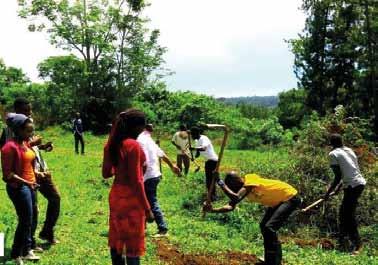
Description of the project: The project seeks to connect international actors participating (and willing to participate) in permaculture activities, while communicating human rights, peace, tolerance, and gender equality and, at the same time, acting on climate change. The project is comprised of three innovative basic concepts that are capable of securing healthy global partnerships and empowering women and local communities while addressing pressing environmental issues. The My Own Moringa design, as simple as it seems, is potentially capable of transforming agricultural innovation in the 21st century, achieving global solidarity and alleviating extreme poverty.
Climate Impact: Encouraging the global trade of Moringa and African superfood, is an ideal solution to several environmental problems. It provides an alternative local currency at times of crises that is capable of supplying the essential nutrients for poor communities and allows food exchange (Barter) within the community based on the supply of Moringa. Moringa can be dried and stored and can be used to make bread and animal staple food while it is also used as medicine and biofuel. It, however, is still underused. Moringa grows in arid and semi-arid soils and can tolerate salinity stress. On the other hand, it can be exported to other places of the world to aid in reducing the consumption of meat with all its harmful effects on the environment and the plant can also serve as a carbon sink.
Gender Impact: The engagement of women in planning and leadership adds another dimension to the project‘s impact on the environment and on innovation. Women and women’s groups are invited not only to participate but to take the lead. As the project grows, it will allow women to own land and influence food markets. IPNAMME takes a special focus on educating girls and training women in organic farming; empowering women through sports, networking and social media; and providing motivational support for girls and women to take control over their lives and wellbeing. Many enthusiastic young men and women, as well as community leaders from countries such as Kenya, Egypt, Nigeria and Uganda are getting interested and are joining in, either as educators/trainers or as farmers of both genders.